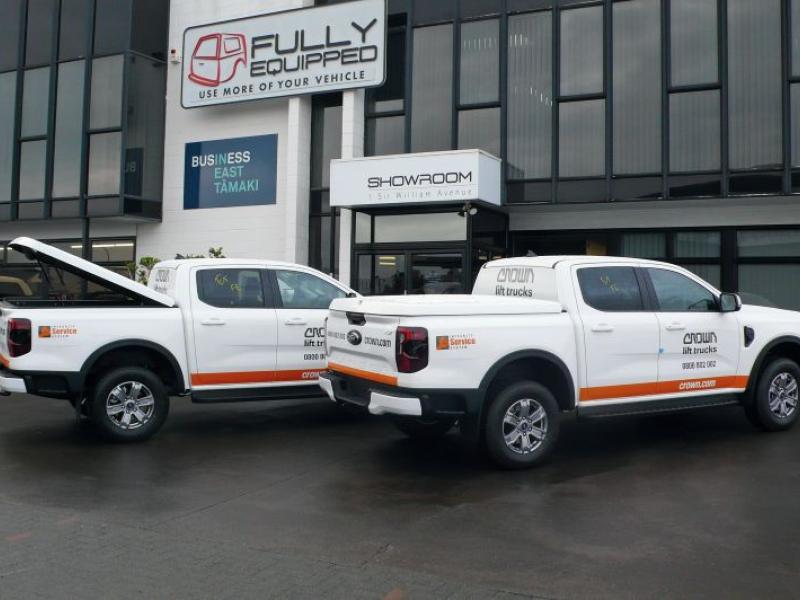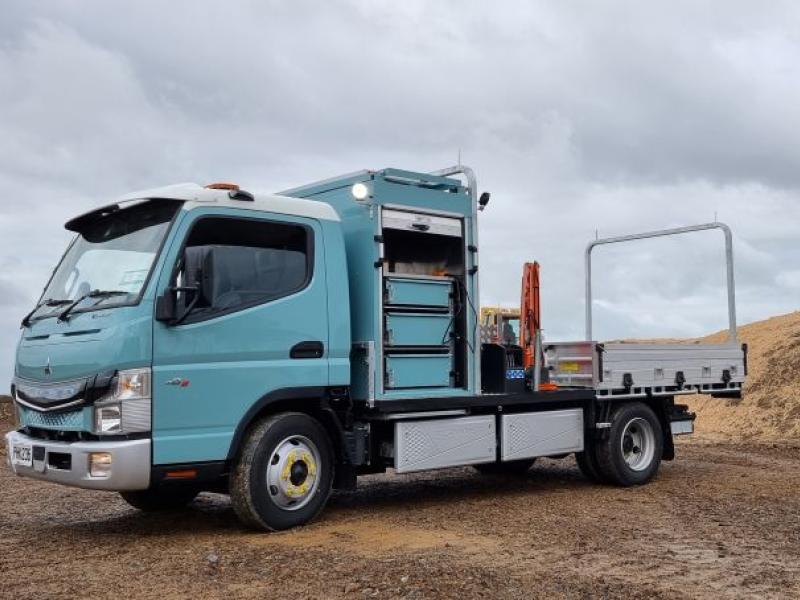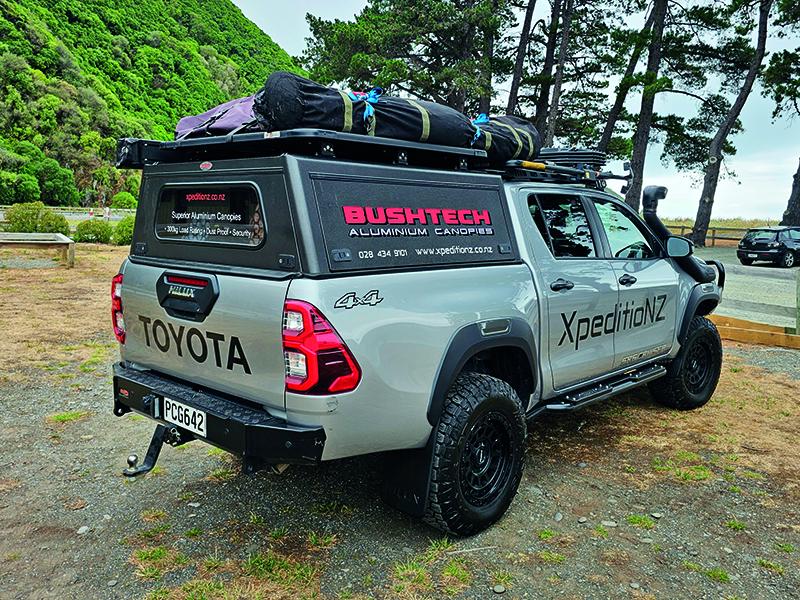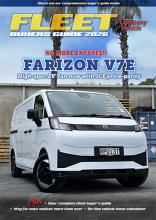| Company Vehicle spoke with Gull New Zealand’s sustainability champion Karl Mischewski just after the National Government repealed the bio fuel sales obligation. The energy bill repealed a requirement for the major oil companies to sell a mandatory 2.5 percent of bio fuel in their annual fuel sales figure by 2012. Karl Mischewski said that despite the repeal it was business as usual at Gull New Zealand. The company would continue to roll out its new Regular Plus 91 octane fuel which has a 10 percent bio fuel content to its network of service stations. Gull Force Ten was the first commercially available 98 octane petrol with a ten percent bio fuel component, which Gull launched into the New Zealand market in August 2007 well before the mandatory sales obligation was to be written into law. Gull New Zealand blends its two bio fuel products Regular Plus and Force Ten at its terminal in Mount Maunganui using ethanol that is produced by the Fonterra dairy factory at Reporoa. “The bio fuel content preserves our point of difference,” says Mischewski. “We believe that oil prices will rise again in the future and once again we will see volatility in the energy market. That’s why we continue as a company to be committed to bio fuel development and infrastructure even though there is no longer a mandatory obligation. “There may well be a time when Gull offers bio fuel across our entire range of fuel products in New Zealand, as we blend our own bio diesel in Queensland, Australia.” Gull Bio-D is a blend of low sulphur diesel with up to 20 percent bio diesel made from locally sourced and renewable feedstock resources. In 2009 Gull hopes to run a trial of Bio-D with a New Zealand commercial customer. With a background in implementing environmental policy and practise in primary industry as well as at the corporate level, Mischewski was the ideal person to champion Gulls sustainability program. His mandate is to develop a strategy for the entire Australasian business including future fuels. “Sustainability is simply about people, products, places and processes,” he says. “We have created a sustainability team of employees who provide education and awareness on this programme to their colleagues throughout the entire Gull operation. We also have a programme called “Quick Win” which is designed to drive further employee initiatives for sustainability.” So how does this sustainable strategy affect the customer at the pump? In the short term while oil prices are low Mischewski says the current forecourt fuel mix will remain the same but it will certainly change in the next five to 10 years. He can see the demand for bio fuel blends being driven up by well informed Kiwi consumers who buy E10 or E85 compatible petrol vehicles as they become more readily available and also by future government policy on vehicle emissions. “People are more aware of climate change and their carbon footprint, but bio fuels offer them performance with an environmental benefit. We could also see fuels like CNG and LPG on the forecourt again.” Incidentally the Australian government recently upped their LPG rebate from $1000 to $2000 dollars for consumers buying a new car. Increased bio fuel production in New Zealand will be reliant on sustainable ethanol sources. Currently waste products from the meat and dairy industry adequately meet the need, but development of sustainable commercially produced cellulose-based ethanol is about five years away. Mischewski is part of a working party gathered under the Standards New Zealand umbrella to develop a sustainable bio fuel standard for New Zealand producers to adhere to. In the future there may be a greater diversity of product for consumers when they drive into a service station to fill up. One wonders what that will be in 2020. Holden onto secure energy sources Holden is pursuing its energy diversity program for current and future fleet models as part of a plan to ensure security of energy resources in Australia and New Zealand. According to Holden New Zealand managing director Simon Carr, LPG is a big part of the energy security strategy, particularly for Australia and New Zealand could also follow suit. Currently dual fuelled VE Commodores are on general sale to corporate and government fleets in Australia and they are also supplied to the New Zealand Police force. Dual fuel LPG systems were specifically developed for the VE program from inception 5 years ago and Holden continues to refine their engineering. “Work is currently being undertaken on a dedicated LPG system for the VE Commodore,” says Mr Carr. “The exact timing to market is yet to be narrowed down, but more than likely we will see it in 2010. “An Australian government subsidy has certainly helped the sales of dual fuel Commodores to private buyers, but this is not available to Government or police fleets. They have purchased petrol/LPG capable vehicles because of high fuel costs and also because of their green policy. Private fleet buyers have done the same.” “The world has changed its opinion on alternative fuels. Residual values of dual fuel vehicles are also considerably higher than solely petrol powered vehicles. However the residuals of LPG dedicated vehicles are even higher than those of fuel vehicles. When Holden moves to a dedicated system we will see further advantages in running costs and reduced emissions. “In my opinion, if energy security is important to the New Zealand government then it’s going to be difficult to ignore LPG, but manufacturers still need a clear direction from the Government on future policy and direction. When questioned on the future of electric vehicles and bio fuels in New Zealand, Mr Carr said that he felt both provided a part of the solution to future fuel requirements. “For certain uses electric vehicles are part of the energy solution. But to solely back a single energy source for transportation in a country like New Zealand is risky, and it’s a major concern for the future. “In the short term you will see more efficient petrol, diesel and LPG vehicles from Holden and in the longer term you will see both CNG and Electric vehicles.” Would this mean a reappearance of CNG in the New Zealand marketplace? “CNG is another available energy source which is currently being trialled in Australia on heavy plant and equipment,” says Mr Carr. “We also have the technologies within General Motors to develop this for local markets if demand requires. “Again with bio fuels, car manufacturers are looking for direction and support from the New Zealand government, but not necessarily legislation. “In the USA there are 4.5 million GM vehicles on the road which can run on E85 fuel (A blend of 85% ethanol and 15% petrol). There are now 1000 outlets that sell E85 fuel, and this was driven by consumer demand not legislation. A sustainable fleet – The pressure is on In today’s fleet market, there seems to be pressure coming from all angles, from both cost and the requirement to follow environmental and sustainable practices and social policy. Companies must future-proof their fleets, or get stung. The much debated and ongoing issue of fuel is still top of mind. Although price at the pump has dropped somewhat, but how long will it last? Can fuel companies blame us for being sceptical? Fuel has had a major impact on the residual values of the large 6-cylinder category of vehicle. There has been a permanent mind-shift to find alternatives. However, this can present obstacles for companies with Employment Agreements in place that specify a certain type of vehicle for remuneration purposes. “For an employee who has been driving a large 6-cylinder vehicle for the last few years, it can be difficult to convince them to change to a recognisably sustainable vehicle such as, for example a Toyota Prius”, says Charles Willmer, Managing Director LeasePlan New Zealand. That’s where your leasing company can advise on the other options that are available, such as for example, the 4-cylinder diesel SUV that is not only more sustainable and cost-effective, but is seen as a lifestyle vehicle. | “There are many more choices out there in the market now, which makes it much easier for the HR Manager to satisfy both employee and Company needs”, says Mr Willmer. Where Employment Agreements allow (in some cases employers have offered a one-off payment to allow changes) some companies have reviewed fit for purpose diesel or hybrid makes. The Ford Mondeo is an example of a high-volume mainstream make to go diesel, along with the likes of Hyundai, which notably have diesel throughout their product range. It makes perfect sense in the long-run, when faced with the choice between petrol and diesel/hybrid. It’s a no brainer. Pressure from the current recession on car manufacturers is going to be a major factor for supply of new cars into New Zealand. Our market volumes, being low by global standards, expose us to stock availability issues.Demand for new cars has been low due to the recession. Issues such as cost of higher interest rates for dealer stock, reducing sales volumes and the availability of floor plan finance are having far reaching impacts on the industry and the way it is currently structured. “Our advice to Fleet Managers is to forward plan aggressively, anticipate your termination dates so as to avoid over-run and ensuring that you are aware of vehicle financiers’ requirements in relation to termination dates” says Mr Willmer. So stay in touch with your Fleet Manager who is always abreast of alternatives that can help you to achieve your environmental and sustainability goals. Award-winning ‘green fleet’ innovation More often than not, a company’s vehicle fleet is one of the top three sources of carbon in its environmental footprint. So, for many businesses, the management and financing of their fleets is a critical element in addressing the issue of sustainability in their organisations. Companies like Custom Fleet are already leading the way in Australia and, this year, are set to replicate this focus across the Tasman. Custom Fleet’s innovative carbon management tool, Drive Lightly, which can help organisations reduce their fleets’ carbon emissions, will soon launch in New Zealand. “Custom Fleet has put a lot of resources and time into developing Drive Lightly, having spent over a year in development before launching it in Australia last year,” says Geoff Tipene, Managing Director, Custom Fleet NZ. “We believe offering such a broad carbon management product is a first for the New Zealand fleet management industry.” Drive Lightly is a fleet carbon management program designed to help fleet managers understand their fleet’s carbon emissions, reduce existing fleet costs and emissions, and offset remaining emissions. Along with energy usage, paper usage and business travel, a company’s fleet can represent a high proportion of its total carbon footprint. Drive Lightly has been developed to provide assistance for companies wishing to address this part of their emissions. The Drive Lightly program offers three simple steps to a total fleet carbon management solution with the ultimate objective of assisting companies to reduce costs, while also managing and reducing emissions. Firstly, Custom Fleet has developed online reporting to measure existing fleet carbon emissions, which will assist in determining potential environmental improvements and where related cost savings can be made. These same reports will also provide ongoing measurement and tracking of reductions and cost savings. Secondly, to assist with the reduction of emissions, Custom Fleet has also designed an on-line Vehicle Selector Tool to allow companies to compare options and find the vehicle that best suits its requirements, budget and the environment. Lastly – and one of the key options of Drive Lightly - is the ability to offset any remaining emissions. Based on actual emissions, the carbon offsets are calculated on fuel type and consumption. Drivers will also be expected to undertake an o-line Driver Training course encouraging behavioral change through promoting fuel reduction techniques and safe driving. “To ensure Drive Lightly meets all New Zealand requirements we have engaged with one of New Zealand’s leading carbon management specialists and are in the process of negotiating an offset agreement,” Tipene says. “This will see us investing in renewable energy projects and resources such as wind farms. We believe investing in renewable energy resources provides us with a proactive approach to carbon reduction rather opting for the more passive sequestration approach.” Custom Fleet is currently trialling Drive Lightly with a number of corporate fleets in New Zealand with the intention of launching as soon as possible. Indeed, Drive Lightly is already being regarded as a welcome innovation for the Australian transport sector, winning the Business Innovation runner up award at the 2008 Fast Thinking/Open Universities Awards. |





